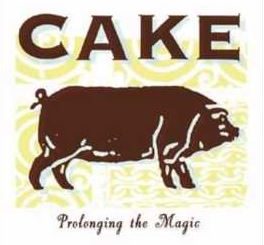Opera Singer by Cake Lyrics Meaning – Unveiling the Persona Behind the Performance
Lyrics
I stand on painted tape
It tells me where I’m going
And where to throw my cape
I call my co-stars brother
I call my co-stars name
I play both good and evil parts
I sing to Verdi’s grave
And every single morning
By 10 a.m I’m dressed
My rehearsals last for hours and hours
With diligence I have been blessed
Some people, they call me monster
Some people, they call me saint
My talent feeds my darker side
Yet no-one will complain
I am an opera singer
I sing in foreign lands
I’ve sung for Kings in Europe
And Emperors in Japan
And after each performance
People stand around and wait
Just to tell me that they loved my voice
Just to tell me that I’m great
I am an opera singer
I will sing when you’re all dead
I sing the mountains crumbling apart
I sing what can’t be said
I am an opera singer
I sing in foreign lands
Most people seem to know my name
Or at least know who I am
Cake, the alternative rock band famous for their offbeat humor and diverse musical influences, has a knack for painting vivid storytelling canvases with their songs. ‘Opera Singer’ is no deviation from this creative prowess, offering a deep dive into the persona of a performer whose life seems as grandiose as the very arias they sing.
But beneath the surface of this grandiosity and the apparent braggadocio lies a nuanced narrative that speaks to the human condition, the price of art, and the often overlooked depths of those who entertain us. Let’s dissect ‘Opera Singer’ to uncover the treasures hidden within its theatrical verses.
A Staged Existence: Life on the Painted Tape
As the ‘Opera Singer’ stands on ‘painted tape,’ we are immediately thrust into a world that is scripted and performative. These lines serve as a metaphor for the boundaries and expectations that confine the artist, with the ‘tape’ representing the prescribed paths for their career and public persona.
Throwing the ‘cape’ is a dramatic gesture, one that both acknowledges the flamboyance of opera and hints at a deeper, perhaps exhausting, commitment to the role. This reference encapsulates the constant negotiation between self-expression and the roles we are obliged to play, both in art and in life.
A Complex Duality: The Angels and Demons of Artistic Talent
Cake doesn’t shy away from portraying the duality of the artist’s life. The singer plays ‘both good and evil parts,’ and here we find the admission that their talent doesn’t discriminate between the light and dark, ‘feeding’ both sides equally. The dichotomy of being seen as both ‘monster’ and ‘saint’ speaks to the perilous heights of adulation and demonization that the public often subjects artists to.
Still, ‘no-one will complain’—the applause drowns out any potential grievances, and the opera singer finds themselves adored yet conflicted, blessed with ‘diligence’ but burdened by expectation and the weight of their own creative force.
The Sound of Prestige: From Royal Courts to the Far East
With the assertive proclamation, ‘I am an opera singer,’ recited throughout the song, Cake builds the narrator’s profile—one etched in the glories of singing for ‘Kings in Europe’ and ‘Emperors in Japan.’ This international fame elevates the singer’s status to a level often envied and idolized.
Yet, this glamourized facade of performing for the high and mighty in ‘foreign lands’ belies the loneliness of the touring artist’s life, their name ‘known’ more than their true persona, further distancing their art from their reality.
An Echo Beyond Applause: Seeking Validation Amongst the Ruins
The aftermath of each show reveals the hunger for validation that consumes the opera singer—’people stand around and wait’ to offer praise. It’s a poignant reflection on the need for external affirmation in the life of someone who performs and lives for the crowd’s reaction.
This yearning for acknowledgment reinforces a sense of identity tied inexorably to performance, where worth is measured in the echoes of applause and the seemingly heartfelt assertions that ‘they loved my voice,’ rather than any internal sense of accomplishment.
Singing What Can’t Be Said: The Opera Singer’s Immortal Resonance
Perhaps the most profound aspect of ‘Opera Singer’ is the admission of the artist’s timeless influence: ‘I will sing when you’re all dead.’ The singer’s voice becomes a vessel for expressing the inexpressible, ‘the mountains crumbling apart,’ representing the timeless and universal power of art to capture both the ephemeral and the eternal.
In these final verses, Cake eloquently encapsulates the essence of the artist’s legacy—a presence that continues to reverberate long after the final curtain falls, singing ‘what can’t be said,’ and leaving an indelible mark on the world’s stage.








